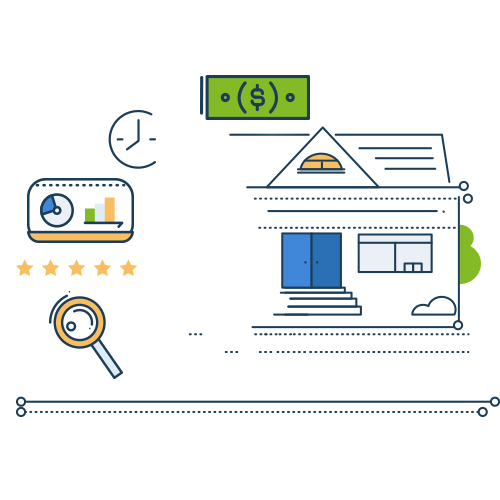Landlords
Five ways to kill your yield

Contrary to popular belief, landlords have plenty of bills to pay. ?
Despite the obvious objective ‘making money’ when entering the property investment space, it doesn’t always go to plan. Clearly then, protecting your yield is one of the most important things you need to do if you are going to be successful as a landlord.Rather than preach to you about the steps that you can take to increase your yield, we thought that we would put together a list of the most common mistakes we see landlords make that damage their yields. The easiest way to start making more money after all, is to stop losing it!
Spend some money now to avoid being stung by a huge bill you are unprepared for later.
The easiest way to cost yourself money being unprepared. Of course, unless your crystal ball is particularly accurate, you can’t predict what maintenance issues might come up, yet assuming that no news is good news is a guaranteed way to see your yields plummet. It is unreasonable to expect that you shouldn’t have to spend money on a property. Property is, after all, an expensive commodity to own.
Put aside a maintenance budget from your rent – we usually recommend allowing anywhere between 5-10% of the weekly rent – for ongoing maintenance. Be proactive and search out things that could need repairing in the next six months to a year and prioritise doing those things early.

Keep your rental income in line with the market rents, and you can protect your yields while your other costs rise
With the increase in legislation across the industry, exemplary damages payments to your tenants because you failed to keep up to date with legislative change is the easy way to burn your cash, eating away at any returns!
“I haven’t changed the rent for four years because they are good tenants” is a phrase that we hear all too often. Of course, we’re not advocating that you to use Section 24 of the RTA, every 6 months as is your legal right, to increase the rent in line with market rate, but failure to at least review the rent once a year is a sure fire way to damage your yields. While insurance premiums, the cost of maintenance and interest rates all go up, the rent that you receive stays the same when you don’t review it.
Keep on top of everything and protect your yield!
A majority of landlords that we meet are exemplary. They respond to maintenance, they don’t overcharge and they are honest and fair people. It is the minority that give the rest of the group a bad name. The reality of it is though, there are a lot of landlords who don’t keep abreast of industry and legislative changes, putting them in the precarious position of owning an uncompliant property.
A successful landlord doesn’t squeeze their tenant for every dollar they have ?

Poor tenants are an easy way to damage your yield. Believe it or not, rent arrears don’t pay the bills. Neither do constant maintenance invoices. Ensure you do your best to vet all prospective tenants. Get landlords’ references for their last three properties where possible and at least one character reference. Reach out to a property manager for a second opinion. The large majority of tenants are fantastic tenants and will cause you no problem, but it only takes one bad experience to damage your yields beyond repair. Do your due diligence and if you have any doubt, seek a second opinion!
As an investor then, protecting your yield is clearly not the easiest thing to do, but when you have clear objectives and reasons for getting into property investment, it seems senseless to ignore them and see your income affected. A successful landlord doesn’t squeeze their tenant for every dollar they have, but should be mindful of protecting the yields they have worked so hard to achieve. Failure to do so means ineffective portfolio management and contradicts the point of expending countless hours managing a property.
For obligation free advice, we are more than happy to take calls anytime on 04 212 6395. We look forward to working with you through 2019.
Explore more posts like this one
View more
February 23, 2026
Wellington Rental Market Update | February 2026

January 22, 2026
Wellington Rental Market Update | January 2026

November 14, 2025
Wellington Rental Market Update | November 2025
